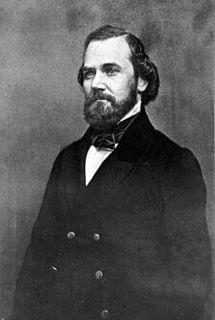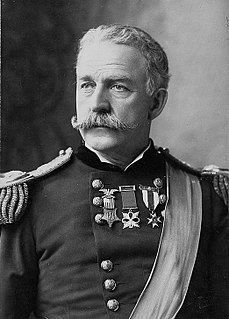Ein Zitat von Robert Mugabe
Es besteht die Möglichkeit, dass diese Truppen im Falle eines Sieges gegen uns eingesetzt werden. Es besteht auch die Möglichkeit, dass die Südafrikaner tatsächlich auf Einladung Großbritanniens dort sind, weil Großbritannien zögert, sie abzuziehen. Daher müssen wir unsere Kräfte bündeln und auf allen politischen Plattformen und in allen Medien den Abzug der südafrikanischen Truppen und konkrete Maßnahmen Großbritanniens zum Abzug dieser südafrikanischen Truppen fordern.
Themen zitieren
Aktion
Afrikaner
dagegen,
auch
weil
Großbritannien
sich zusammenschließt,
eindeutige
Nachfrage,
Tatsachenkräfte
,
daher
in der Tat
Einladung
erhalten Medien
brauchen
,
Plattformen,
politische
Möglichkeit
,
Südafrika,
Südafrika,
sie, jene
durch Truppen
,
die wir
siegreich
eingesetzt haben, werden
zurückziehen
Verwandte Zitate
Natürlich müssen wir unsere Kräfte bündeln. Südafrikanische Truppen sind im Land. Wir haben diese Angelegenheit bei unserem Treffen mit Frau [Margaret] Thatcher und Lord [Peter] Carrington angesprochen und wollten von ihnen die klare Zusage bekommen, dass sie die südafrikanischen Truppen abziehen würden.
Wir haben keinen Südafrikaner als Mitglied der Afrikanischen Kommission. Der Präsident der Kommission kommt aus Mali, der Stellvertreter kommt aus Ruanda und dann haben wir noch all diese anderen Mitglieder, normale Kommissare. Es gibt dort keinen Südafrikaner. Und der Grund dafür liegt wiederum nicht darin, dass wir keine kompetenten Südafrikaner hatten.
Die USA leiteten den Krieg gegen Südvietnam. 1954 kam es zu einer politischen Einigung. Doch in den späten 1950er Jahren organisierten die Vereinigten Staaten eine interne Unterdrückung in Südvietnam, wobei sie nicht ihre Truppen, sondern den von ihnen aufgebauten lokalen Apparat einsetzten. Dies war eine sehr bedeutsame und sehr wirksame Kampagne der Gewalt und des Terrorismus gegen die Vietminh – die von den Kommunisten geführte nationalistische Kraft, die gegen die Franzosen kämpfte. Und die Vietminh hielten sich damals an die Genfer Abkommen und hofften, dass die politische Lösung in Südvietnam klappen würde.
Die afrikanische Sklaverei ist der Grundstein des industriellen, sozialen und politischen Gefüges des Südens; und was auch immer dagegen Krieg führt, Krieg gegen ihre Existenz selbst. Wenn Sie die Institution der afrikanischen Sklaverei niederschlagen, reduzieren Sie den Süden auf Entvölkerung und Barbarei.
Eine Reihe afrikanischer Länder kamen zu uns und sagten, wir fordern, dass Südafrika keinen Kandidaten aufstellt, weil so viele andere afrikanische Länder dies wollten und Südafrika auf jeden Fall weiterhin eine Rolle beim Aufbau spielen würde Afrikanische Union und so weiter. Und sie sagten tatsächlich: Bitte stellen Sie keinen Kandidaten auf, und das haben wir nicht getan. Wie ich bereits sagte, liegt es nicht daran, dass wir keine kompetenten Leute für diese Positionen hatten.
Nelson Mandela saß 27 Jahre lang in einem südafrikanischen Gefängnis. Er war gewaltlos. Er verhandelte über seinen Weg aus dem Gefängnis. Seine Ehre und sein Leiden während 27 Jahren in einem südafrikanischen Gefängnis haben letztendlich die Freiheit Südafrikas herbeigeführt. Das ist Gewaltlosigkeit.
Im Gegensatz dazu sagen westliche und südkoreanische Historiker, dass der Norden den Süden am 25. Juni 1950 angegriffen habe. Beide Seiten sind sich einig, dass die nordkoreanische Armee nach Kriegsbeginn Seoul innerhalb von drei Tagen eroberte und bis nach Pusan vordrang Amerikanische Truppen trafen ein, um die Nordkoreaner fast bis zur Grenze zu China zurückzudrängen.
Jeder einzelne Krieg, den Sie erleben, ist illegal. Sie brechen die Genfer Konvention und sie brechen alles Mögliche, was sie nicht sein sollten. All diese sterbenden Soldaten, alle reden davon: „Unterstützen Sie unsere Truppen, unterstützen Sie unsere Truppen“, ja, wir unterstützen unsere Truppen, aber wofür kämpfen sie? Unterstützen wir sie aus dem richtigen Grund. Sagen wir unseren Truppen die Wahrheit, dann wären sie vielleicht gar nicht da draußen und würden diese Kriege führen, weil es viele dieser Truppen gibt, die gar nicht da draußen sein wollen, wenn man mit ihnen redet.
Ich verstehe nicht wirklich, dass Darren Lehmann sagt, dass das südafrikanische Publikum außer Kontrolle geraten sei. Jeder englische Spieler, sogar die Medien, die Australien bereist haben, kann über diese Kommentare lachen, denn ich weiß, dass einige der Dinge, die wir von australischen Fans auf dem Platz hören, sogenannte „Geplänkel“, schlimmer sind als in Südafrika.
Früher gab es die Sowjetunion und den Warschauer Pakt. Früher gab es in der DDR sowjetische Truppen. Und wir müssen ehrlich zugeben, dass es sich um Besatzungstruppen handelte, die nach dem Zweiten Weltkrieg unter dem Deckmantel alliierter Truppen in Deutschland blieben. Jetzt sind diese Besatzungstruppen verschwunden, die Sowjetunion ist zusammengebrochen und der Warschauer Pakt existiert nicht mehr. Es besteht keine sowjetische Bedrohung, aber NATO- und US-Truppen sind immer noch in Europa. Wozu?







































